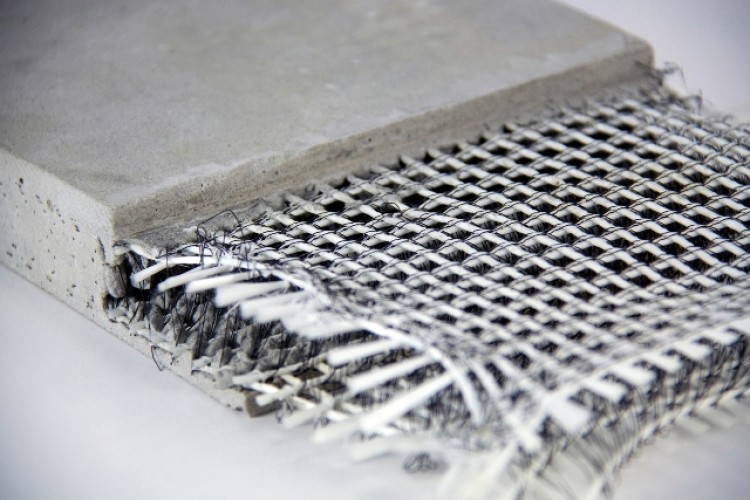Discovering the Uses and Advantages of Recycled Composites in Modern Industries
In today's quickly evolving commercial landscape, the utilization of recycled compounds has amassed enhancing attention for its possible to redefine standard production methods. The combinations of recycled materials with advanced composite technologies presents a promising opportunity for improving sustainability, strength, and cost-efficiency across various markets. As sectors look for cutting-edge solutions to address ecological problems and enhance functional efficiencies, the unification of recycled compounds arises as an engaging choice. This shift in the direction of lasting methods not only aligns with worldwide conservation initiatives but likewise provides a myriad of advantages that hold the secret to forming the future of modern production approaches.
Ecological Benefits of Recycled Compounds
The utilization of recycled composites in contemporary markets provides significant ecological advantages, contributing to the decrease of waste and the preservation of natural deposits. By including recycled compounds into producing processes, sectors can lower their reliance on virgin products, consequently minimizing the amount of waste produced and the energy required for removal and manufacturing. This change in the direction of making use of recycled compounds assists in drawing away materials from garbage dumps, easing the concern on waste management systems, and reducing greenhouse gas exhausts linked with standard production techniques.
Furthermore, making use of recycled compounds promotes the preservation of natural sources such as lumber, minerals, and water, which are typically diminished through the extraction and handling of resources (composites). By prolonging the life expectancy of materials via recycling, markets can aid protect ecological communities and biodiversity by reducing the need for brand-new sources. On the whole, the fostering of recycled compounds in modern markets plays a crucial duty in advertising sustainability and reducing the ecological impact of manufacturing procedures
Improved Toughness in Item Production
With a concentrate on durability and effectiveness, integrating recycled compounds right into item manufacturing processes enhances sturdiness and sustainability. By making use of recycled composites, producers can create items that are not only strong yet also resistant to damage, making them perfect for long-term usage in various industries. The combination of various materials in recycled compounds can frequently result in improved stamina and durability compared to standard products, offering a cost-effective service for creating long-lasting goods.
One of the essential advantages of utilizing recycled composites in item production is the capability to tailor the material buildings to meet certain durability demands. By readjusting the structure and manufacturing methods, makers can customize the recycled composites to endure rough environmental conditions, heavy loads, or constant usage without compromising on performance. This adaptability in style and production enables the development of highly durable products that keep their stability over time, decreasing the demand for constant replacements and inevitably adding to an extra sustainable manufacturing procedure.
Cost-Effectiveness and Financial Advantages
Integrating recycled compounds right into item production not only improves resilience and sustainability yet additionally offers substantial cost-effectiveness and economic benefits. Using recycled compounds can result in reduced material prices as recycled products are typically more economical than virgin materials. In addition, reusing composite materials can decrease waste disposal expenses and reduce the requirement More about the author for landfill space, adding to total cost financial savings for industries.

Technology and Layout Flexibility With Recycled Compounds
Making use of recycled composites in contemporary sectors supplies unmatched possibilities for technology and layout versatility. By incorporating recycled materials into composite production procedures, business can press the boundaries of conventional style restrictions and check out new opportunities. The convenience of recycled composites allows for the production of complicated forms and structures that could not be attainable with conventional products.
Among the essential benefits of recycled compounds is their capacity to be formed into numerous kinds, giving designers the flexibility to explore special sizes and shapes. composites. This adaptability opens a globe of imaginative possibilities, making it possible for the development of light-weight yet resilient products that satisfy the certain requirements of different markets
Furthermore, making use of recycled compounds promotes lasting techniques and supports the circular economy by reducing waste and minimizing the ecological influence of manufacturing processes. This concentrate on eco-friendly layout services lines up with the growing fad in the direction of sustainability in contemporary sectors, making recycled composites an important resource for forward-thinking and ingenious companies.
Applications Across Different Industries
Recycled compounds find impactful and varied applications throughout a large array of markets due to their special buildings and sustainability benefits. The aerospace industry benefits from recycled compounds in the manufacturing of aircraft parts, where the materials' strength-to-weight proportion is important for making sure safety and efficiency. The adaptability and sustainability of recycled composites make them valuable throughout numerous industries, driving innovation and environmental stewardship.
Verdict
Finally, the application of recycled composites in click this contemporary markets offers substantial environmental benefits, improved durability in item manufacturing, cost-effectiveness, and economic benefits. The use of recycled composites enables for development and style versatility throughout numerous industries. Generally, the fostering of recycled composites provides a functional and sustainable service for satisfying the needs of the industry while likewise reducing environmental influence.

One of the crucial benefits of utilizing recycled composites in product manufacturing is the capacity to customize the material residential properties to satisfy particular sturdiness requirements. Utilizing recycled composites can lead to decreased product prices as recycled materials are commonly much less pricey than virgin materials. The aerospace sector advantages from recycled composites in the production of airplane parts, where the products' strength-to-weight proportion is important for ensuring security and efficiency.
Comments on “Composites: The Future of Lasting Construction Materials”